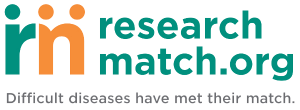
Research Study FAQs
What is a research study?
A clinical trial, or research study, is the scientific term for a test or study of a drug, therapy, surgical procedure, medical device, or of nutrition or behavioral changes in people. The tests are done to find out if the drug, therapy, procedure, etc. is safe and effective for people to use.
The overall purpose of a study is to learn, not to treat patients. Before you volunteer to participate in a study, ask about any risks associated with the treatment being tested.
Is this study safe?
Before a prospective treatment is tested on humans, it is thoroughly tested through laboratory and model studies to determine if it’s safe.
Who makes sure a study will be safe?
Physicians and other medical professionals run trials according to strict rules set by the federal government. The U.S. Department of Health and Human Services has two offices that identify these rules: the Food and Drug Administration (FDA) and the Office for Human Research Protections (OHRP).
These agencies have good clinical practice requirements that establish rules every clinical trial must follow, such as how to conduct a study and how to protect human subjects. The federal government also has a policy that protects human subjects. This policy is called the “Common Rule.” It applies to all research funded by the federal government.
The Common Rule says an institutional review board, or IRB, must guarantee it will provide and enforce protection for people involved in its research. An IRB reviews and approves the trial protocol before the trial can even begin. It must look at the informed consent process, benefits and risks, and how volunteers will be selected.
Who is on the IRB?
An IRB is made up of medical and non-medical professionals, as well as lay people — in short, a group of people who represent a cross-section of the community.
Who usually sponsors research studies?
Research studies are sponsored or funded by a variety of organizations or individuals. They can be sponsored by doctors, medical institutions, foundations, voluntary groups, pharmaceutical companies, or federal agencies such as the National Institutes of Health, or NIH.
What are the “phases” of clinical trials (research studies)?
After a treatment is tested in the laboratory, it can go to human testing. There are four phases of human testing.
Phase I
Researchers test a new drug or treatment in a small group of people (20-80) for the first time to test its safety, identify the maximum tolerated dose, find a safe dosage range and identify side effects.
Phase II
The drug or treatment is given to a larger group of people (100-300) to see if it is effective, to further evaluate its safety and to gather additional information regarding safe dose range.
Phase III
The drug or treatment is given to large groups of people (1,000-3,000) to confirm its effectiveness, monitor side effects, compare it to commonly used treatments and collect information that will allow the drug or treatment to be used safely.
Phase IV
During this phase, investigators are looking for additional information, including the drug or treatment’s risks, benefits, and optimal use. This trial may occur after the drug or treatment has been approved for use by the FDA.
Phase V
Trials may be conducted to determine better dosing guidelines, new formulations, effects on different populations or new indications.
Why do people volunteer for research studies?
By taking part in research studies, you can try a potential new treatment that may (or may not) be better than standard treatments available. Your participation may also help people who may be suffering from the same disease or condition in the future.
It is important to remember that if you participate, you will be part of a group that is testing a treatment that has not yet gone through complete testing showing it to be effective and safe.
Is there any reason I’d have to participate in a research study to receive treatment?
No. You are the only one who can make this decision. You will receive customary medical care whether or not you choose to participate in a research study. It is unethical for anyone, including your physician, to pressure you to participate.
You should be given complete, accurate and balanced information about the trial. Feel free to take plenty of time to review that information, so you fully understand the benefits and risks before you decide to volunteer.
How much does it cost?
Most costs in a clinical trial are covered by grants or funds contributed by the trial sponsor. Routine procedures — such as blood tests or other lab work that you would need whether or not you were participating in a trial — are usually covered by your insurance.
Each trial is different, so it’s best to check with the study coordinator to find out about costs.
How do I know if the study is right for me?
You may volunteer for any study appropriate to your condition. However, each research study has strict eligibility requirements. The investigator (physician or other medical professional who runs the study) will make sure you meet these requirements before accepting you in the study.
What do I need to know before I decide to participate?
The study investigator should explain everything about the study before you make a decision. That’s called informed consent.
However, there are a number of questions you might ask before deciding if a research study is right for you.
- Why were you invited to join the research study?
- What is the purpose of the research? What is the study trying to find out?
- What are the risks and benefits of participating in the study?
- What are the alternatives to being in the study?
- What are my other treatment choices? How do they compare with the treatment being studied?
- What side effects, if any, can I expect?
- Who is in charge of the research study?
- How much time is involved?
- What “phase” is the study testing? (See above for an explanation of phases.)
- Will I be hospitalized?
- How long will the study last?
- What will you have to do as a research participant?
- What kinds of tests might I have to take?
- Will you be charged or paid for your participation in the study?
- What are the costs to me?
- Who will pay if research study funds don’t cover these costs?
- What should you do if you change your mind?
- Can you still see your own doctor or therapist while you are in the study?
- What happens in case of an emergency?
- What happens after the study is complete?
- Who should be contacted with questions about the study, your rights and responsibilities, or financial costs?
- Who will know you were in a study?
- How much privacy can you expect as a participant in a study?
I’m considering participation in a research study. What questions should I ask before agreeing to enroll?
We recommend you review the National Institutes of Health’s clinical trials web page to learn more about the basics of research studies.
What is “informed consent?”
Informed consent means you are given complete information about a study. Before you agree to volunteer, this information will be given to you in writing, and written clearly, so you can understand it. Before you can participate, you must sign the informed consent form showing you’ve been given this information and understand it.
Informed consent is also an ongoing process. It includes ongoing discussions regarding the risks and benefits of participating in a clinical trial. If you decide to choose standard treatment, instead of participating in a clinical trial, you should still be given complete information about your treatment alternatives, and their benefits or risks.
What if I change my mind about participating? Will I still be able to get treatment?
Informed consent is NOT a contract. You can leave the study at any time you choose. Just tell the investigator or study coordinator. It’s important to know your decision to leave a study will not involve a penalty. You will still be able to have standard treatment appropriate for your disease or condition.
You always have the right to refuse treatment or choose among treatment options, whether they involve a clinical trial, or are part of standard treatment options. The investigator may also determine that it would be in your best interests to discontinue participation before completing the clinical trial.
Research studies test whether new medicines, devices, or procedures are safe and how well they work.
There is a critical need for volunteers for these studies. Low enrollment in research studies is one of the largest problems facing the development of new and improved treatments. Eighty-five percent of studies get started late and 40 percent never finish because of a shortage of volunteers.
How You Can Help
When you participate in a research study, you are helping to move research forward. This means that cures and treatments are able to reach people more quickly.
This site can help you find studies that match your interests or needs. Both healthy volunteers and people with specific health conditions are needed to help answer important healthcare questions.
Browse Open StudiesOther Ways to Help
We also encourage you to learn more about the two nationally focused research endeavors below.
All of Us Research Program
 All of Us is a new research program from the National Institutes of Health (NIH). The goal is to advance precision medicine. Precision medicine is health care that is based on you as an individual. It takes into account factors like where you live, what you do, and your family health history. Precision medicine’s goal is to be able to tell people the best ways to stay healthy. If someone does get sick, precision medicine may help health care teams find the treatment that will work best.
All of Us is a new research program from the National Institutes of Health (NIH). The goal is to advance precision medicine. Precision medicine is health care that is based on you as an individual. It takes into account factors like where you live, what you do, and your family health history. Precision medicine’s goal is to be able to tell people the best ways to stay healthy. If someone does get sick, precision medicine may help health care teams find the treatment that will work best.
To get there, the study needs one million or more people. Those who join will share information about their health over time. Researchers will study this data. What they learn could improve health for generations to come.
ResearchMatch
 The ITHS is pleased to participate in ResearchMatch, a free, nationwide database of potential research volunteers sponsored by the National Institutes of Health. The goal of ResearchMatch is to bring volunteers together with researchers working towards new medical treatments (not just clinical trials).
The ITHS is pleased to participate in ResearchMatch, a free, nationwide database of potential research volunteers sponsored by the National Institutes of Health. The goal of ResearchMatch is to bring volunteers together with researchers working towards new medical treatments (not just clinical trials).
Many studies are looking for healthy people of all ages, while some are looking for people with specific health conditions. Considering becoming a ResearchMatch volunteer? Visit the ResearchMatch website to learn more about the registry, and be sure to read the Volunteer FAQ.





